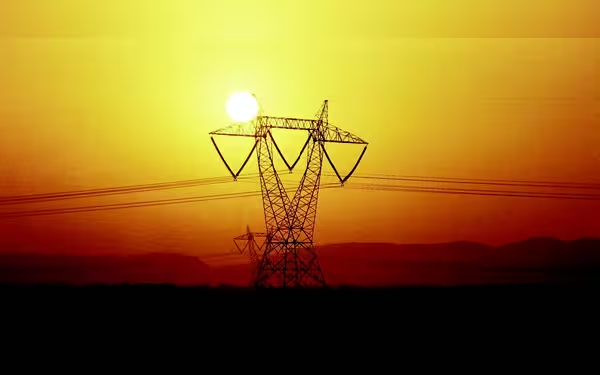Saturday, November 16, 2024 09:58 PM
Pakistan Government Plans 17,000 MW Power Capacity Expansion by 2034
- Government to add 17,000 MW by 2034.
- Focus on least cost methodology for energy projects.
- Diversification of energy sources for sustainability.
 Image Credits: tribune.com.pk
Image Credits: tribune.com.pkPakistan plans to add 17,000 MW of electricity capacity by 2034, focusing on cost-effective and sustainable energy solutions.
The power sector in Pakistan has long been a topic of discussion, especially regarding its capacity to meet the growing energy demands of the nation. With an increasing population and rapid industrial growth, the need for reliable electricity has never been more critical. The government has announced an ambitious plan to add 17,000 megawatts (MW) of electricity generation capacity by the year 2034. This initiative aims to ensure that the country can provide sufficient power to its citizens and industries, thereby fostering economic growth and stability.
In the past, the approach to electricity generation in Pakistan has faced criticism. The generation aspect of the power sector was not developed using a "least cost methodology," which means that the most economical options were not always prioritized. This has led to inefficiencies and higher costs for consumers. However, officials have now expressed a commitment to changing this approach. They have stated that future generation projects will be based on the "least cost methodology," ensuring that the country invests in the most cost-effective and sustainable energy sources available.
This shift in strategy is crucial for several reasons. First, it can help reduce the financial burden on consumers who have been facing rising electricity tariffs. By focusing on cost-effective solutions, the government can provide more affordable electricity, which is essential for both households and businesses. Second, a well-planned energy generation strategy can lead to a more stable power supply, reducing the frequency of load shedding that has plagued many regions.
Moreover, the addition of 17,000 MW will not only enhance the overall capacity but also diversify the energy mix. This diversification is vital for reducing dependence on any single source of energy, such as fossil fuels, which can be subject to price fluctuations and environmental concerns. By investing in renewable energy sources like solar and wind, Pakistan can work towards a more sustainable and environmentally friendly energy future.
The government's plan to add 17,000 MW of electricity generation capacity by 2034 is a significant step towards addressing the energy challenges faced by Pakistan. By adopting a "least cost methodology" for future projects, the government aims to provide affordable and reliable electricity to its citizens. This initiative not only promises to improve the quality of life for many but also sets the stage for economic growth and development in the years to come. As the nation moves forward, it is essential for all stakeholders to remain committed to sustainable practices that will benefit both the economy and the environment.













